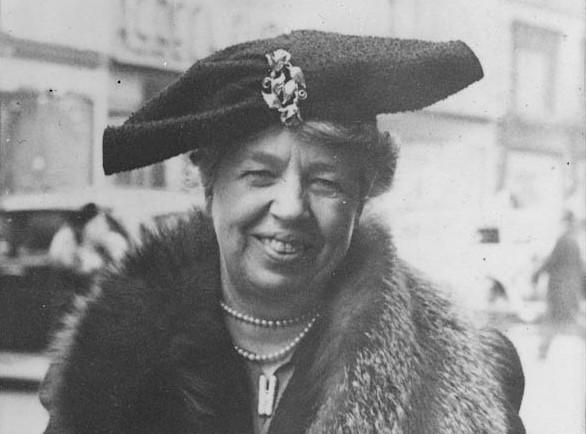
[Editor’s note: To participate in our weekly advice column, submit your questions here and watch this space each Wednesday.]
I’ve been reading a lot about some of the incidents of police brutality this year so far—Sandra Bland, McKinney, Freddie Gray. I know the Bible tells us to submit to authority, but the accounts of how authorities treated these people are appalling and maddening. How can we balance respecting authority and wanting justice when people misuse their power?
-Mason
Thanks, Mason.
Appalling and maddening indeed. Thank you for asking a wise question. I hope to do it some measure of justice with my answer. To that end, I must begin with a preface—a few of them actually:
First of all, I am a white male. I have never been pulled over for no reason. And my worldview (though I’m always trying to expand it) is skewed because of my societal privilege. That being said, this is a question I feel comfortable answering, but should also be addressed by those who have personal experiences with authoritative abuse.
And second, my answer is not exhaustive. There are, as I’m sure you know, endless complexities to the issues surrounding race, the abuses of power and how we should respond. What I’ve attempted to do here is simply answer your specific question. This will inevitably lead to more questions—which I would encourage all of us to bravely seek answers to.
Having prefaced sufficiently, let’s dig in.
As we consider walking the tightrope of respecting authority while at the same time challenging it, one of our greatest sources of wisdom comes from those who have successfully managed to do this in the past. Of course, we can all rattle off the impressive list of names: Dr. King, Rosa Parks, Malala Yousafzai, Mahatma Gandhi, to name a few. But for this conversation, I find it helpful to learn from those names, while following directly in the path of another one: Jesus.
From the moment He was born, Jesus lived a life that was respectful to authority, while at the same time immeasurably challenging of it. His entire life, every healing, every sermon, every dinner invitation, every moment—just His mere existence—was forcing justice upon the systems, laws and authorities that were unjust.
When you think about it, being Jesus must have been incredibly hard. There was never a corner to hide in, and nothing He ever did was just OK to everyone. Someone always hated Him, someone always feared Him and ultimately many wanted Him dead because He refused to shy away from truth.
Yet in His entire life, Jesus never sinned. That may seem like an obvious, throwaway Christian pleasantry to insert here, but when you consider the injustice He was staring down, the use of sin would have been, well, kind of understandable.
I mean, who among us doesn’t want to sin, even just a bit, when we hear a now well-worn story of another victim being cut down at the hands of an oppressor? When we hear about someone in power taking from someone else the good things that God has given them, don’t we want to fight? I mean physically, fight. Don’t we want to yell and disparage and give full vent to our anger? Don’t we want to oppress the oppressor? I do.
But Jesus didn’t, though He certainly could have. In a moment, He could have called down the army of angels to rain down the weight of heaven and earth among the governments that felt they were larger than God. Furthermore, and even more of a stretch (though not theologically provable or unprovable), Jesus probably could have just obliterated all those who stood in the way of His truth by using His laser beam eyes. Did he have them? We don’t know. Could He have had them if He wanted them? Certainly.
In any event, the person in history with the greatest amount of ability to challenge oppression head on used only one tool: truth.
We must also be about truth, but what we can’t bring into the equation of oppression is sin. The oppressors are sinning by being unjust. We must respond by not begetting sin with more sin. But how:
Like Jesus, we must never shy away from that which is right. In our words, in our actions, in our Facebook posts, in our sermons, and in the demonstrations we march in—we must say that which is true: that black lives matter and the cancer that is eroding the fabric of our civilization will not be tolerated. We must speak the truth, like Jesus, that all people are valued, all people are loved and that we will go to the death proclaiming that reality.
Additionally, we must never act as though it is not our job to do the work of justice. Before and during the life of Jesus, the statement “do justice” was repeated like a mantra that was meant to be tattooed on a forearm for constant reference.
As Christians, we don’t have an option to sit by and pretend we don’t have a part to play in this. We do. And that part is refusing to simply watch our sisters and brothers get cut down; rejecting sin in the lives of others and in our own life; and finally, loving. Yep. That may be the hardest one. We’re called to love those who persecute and remember that God created them—and redemption is possible for even the worst of sinners.
Mason, you asked a good question, and I’m grateful you took the time to consider this important issue. I know my advice wasn’t practical, but I hope that if we all think about how we can respect authority while at the same time blatantly challenging the practices of that authority, we may actually live to see a time when the content of character reigns supreme to the color of skin.
Sincerely,
Eddie
Have a question? Good! Send an email to [email protected]. All identifying information will be kept anonymous.






















